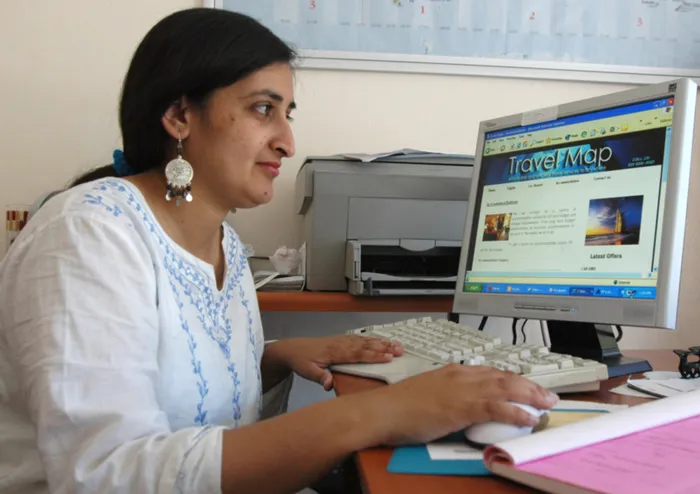Travel agents’ experience does count

Cape Town 080130-Qudsia Paleker a woman who started Travel Agency reporter Rovnie pictures Mlondolozi Mbolo Cape Town 080130-Qudsia Paleker a woman who started Travel Agency reporter Rovnie pictures Mlondolozi Mbolo
The recent publication of alarmist and sensational “facts” by an online travel retailer that suggests consumers are being ripped off by travel agents has prompted South African Travel Centre (SATC) to set the record straight and assure the public that they are among the best-protected consumers worldwide.
This is largely thanks to the Consumer Protection Act.
According to SATC CEO Bulelwa Koyana, consumers have become more vigilant with respect to understanding their rights. “There is definitely increased evidence of consumers protecting themselves from entering into potentially harmful transactions with commercial entities operating in the country,” she says.
Koyana says it is important to understand why consumers continue to seek the services of travel professionals (travel agents). “Travel professionals are exposed to every aspect of the industry and they are well-positioned to provide the most appropriate solution to each client’s unique situation.
“Their experience and expertise is invaluable with regards to destination-specific conditions such as visa or health vaccination requirements, advice regarding flight connecting times, not to mention personal support in the event that travel disruptions occur (this brings to mind the frustrations faced by stranded travellers during the recent volcanic eruptions),” she says.
When it comes to corporate travel accounts, the travel management company is responsible for monitoring adherence to corporate travel policies, as well as regular reporting on the clients’ expenditure and travel patterns.
“Incidentally,” says Koyana, “corporate clients often elect not to book the lowest available fares due to last-minute meetings and unexpected schedule changes. This can mean having to change flights at the last minute. The higher ticket classes allow these clients to make the necessary changes to their flights without piling on additional charges in the form of penalties, ticket upgrades and re-bookings.”
While aircraft seating plans may seem to consist only of economy, business and first class, within the complex revenue management systems utilised by airlines to determine how their available seats should be priced in order for them to operate each aircraft viably, many fare levels exist within each cabin of the aircraft. For example, about 14 fare levels may exist in economy class on a Johannesburg-London route.
Specific fare rules are attached to each fare level type and are based on the traveller’s ability to make date changes to the ticket; some fare types don’t incur penalties while others within the same class of travel will incur low costs or very high costs.
“The same principle applies to the degree of flexibility to refund tickets – from fully refundable to varying penalties being incurred. Other restrictions for fare types may include only certain days of the week where travel is permitted or minimum and maximum stays; among others. The fare rules for each fare type on each flight reservation must be checked and explained to the customer to avoid any nasty surprises when changes need to be made or in the unforeseen event that the tickets need to be cancelled,” says Koyana.
She says consumers should always deal with an ASATA member travel agent to be assured their best interests are looked after. - Saturday Star